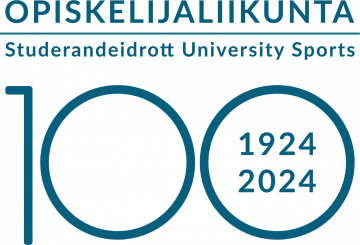University sports in the European Union
The Finnish Student Sports Federation (OLL) wants the European elections to highlight the problem of physical inactivity and the requirements for tackling it.
The policy paper of the Finnish Student Sports Federation (OLL) on sport (avalaiable here, only in Finnish and Swedish) emphasises the roles of health and recreational sport as the most important part of sport services in higher education institutions. According to the policy paper, the European Union should continue to support partnership projects between university sport activities and networking.
OLL is a member of the European University Sport Association (EUSA), which also has a student committee member proposed by OLL. OLL is a member of the International University Sports Federation (FISU), which is based in Switzerland and also has a Finnish representative on its student committee. In addition, OLL is part of the European Network of Academic Sport Services (ENAS) and has participated in European Week of Sport (EWoS) as an Erasmus+ partner, most recently in 2023.
Sports Policy in the European Union
The EU promotes equal opportunities for its citizens to participate in sports, and supports sports organisations. The union offers an opportunity for those involved in sports to work together across national borders. Among other benefits, this will allow higher education institutions’ sports services to network with their sister organisations and develop their own activities.
The EU has a supporting role, meaning that it can support, coordinate and complement sport sector activities in member states in the field of sport and physical activity. In 2007, the European Commission adopted a white paper on sport, which was the first EU policy initiative in this area. The white paper has a number of purposes, including highlighting the social role of sport, promoting public health through sport, supporting voluntary activities, extending the economic dimension of sport and the free movement of players, combating doping, corruption and money laundering, and monitoring of media rights.
Both the key role of physical activity in maintaining physical and mental health and the major health problems caused by physical inactivity have been recognised in the EU, for example in the EU Council conclusions on lifelong physical activity, adopted in 2021. The conclusions highlight the importance of regular and sufficient physical activity for the physical, mental and social development of young people. In 2015, the annual cost in the European Union of insufficient physical activity was estimated at €80 billion.
The European Union work plan for sport is one of the most important documents on sports policy. The 2021–2024 work plan has three priorities: protecting the integrity and values of sport, the socio-economic and environmental dimensions of sport, and promoting sport and health-enhancing physical activity. To promote physical activity, the third of these, should be given particular emphasis in the coming legislature. The new work plan should be adopted during the Belgian presidency of the Council of the European Union in the first half of 2024. The presidency agenda also includes a debate on the role of non-organised sport and free sport in the European sport model.
Under the authority of the European Parliament, the parliamentary Committee on Culture and Education (CULT) is responsible for developing EU sports policy alongside cultural, youth and education policies. The committee is also in charge of the Erasmus+ programme.
EU funding for sport
The European Union supports sport and physical activity projects through various funding channels. Sport is an integral part of Erasmus+, the EU’s action programme to support education, training, youth and sport in Europe. The current 2021–2027 programme allocates 1.9% of the total budget to sport. For sports organisations and higher education institutions, the best-known EU funding programmes for promoting sport and physical activity are Erasmus+Sport or Erasmus+Youth. Higher education institutions and student organisations may also be familiar with LEADER+ funding for community-led local development, European Social Fund (ESF) funding and European Regional Development Fund (ERDF) funding.
To be eligible for international EU funding, a project proposal must meet one of the EU’s priorities in sport and physical activity policy. EU policy papers play a key role in Erasmus+Sport funding and other EU project funding that requires an international dimension.
Sources
EU Council conclusions on lifelong physical activity 2021/C 501 I/01
European Council resolution on a European Union work plan for sport (2020/C 419/01)
EU funding for sport and physical activity 2021–2027
Erasmus+Sport (Finnish National Agency for Education)
Document library (European Commission Sport) » EU sport policy paper
Enlarged Partial Agreement on Sport (EPAS)International sport policy of the Finnish Ministry of Education and Culture
Finnish Olympic Committee information pack for MPs (in Finnish)
Page last updated 6.5.2024

